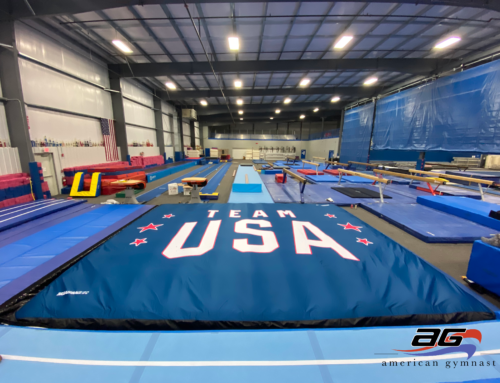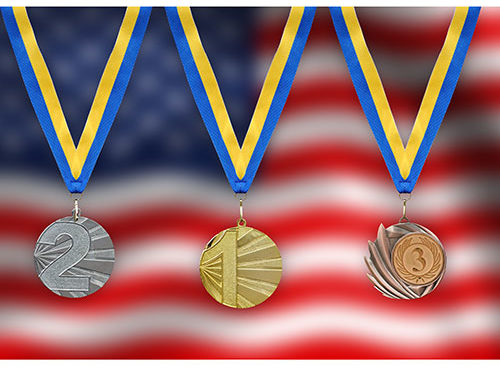If you haven’t already, I would highly recommend reading this interview of Nellie Kim, which was just posted on International Gymnast. It’s very insightful and quite a fascinating read. Nellie Kim is the current president of the FIG Women’s Technical Committee, and to many of us who didn’t watch gymnastics in the late 70’s and 1980, she’s been somewhat of a mysterious figure in the women’s judging world. I’ve always viewed Nellie Kim as very stoic and maybe a little smug…she never seems to smile or show much personality, and there always seems to be some controversy around her judging opinions. But after reading this interview, I think there’s a very positive and encouraging side to her that she seems to hide quite well.
Some of the topics she discusses in depth in the interview:
- The reason for counting eight elements as opposed to ten in the women’s code
- How to judge “artistry” objectively
- Trying to blend the men’s and women’s codes
- Portraying gymnastics positively rather than negatively
- Encouraging older female gymnasts to continue competing
- The never-ending age requirement saga
- What it was like competing until age 23
- The politics she became more aware of as an older athlete in 1980
- Someone “deliberately” turning off her music twice during the 1980 Olympics!
I had never heard of that “music” incident before. I looked up some videos of her from those Olympic Games and found a routine that I believe is from the team competition, but I don’t see the music problem she referred to. She says in the interview that it happened during the qualifications and the all-around, but watching both her compulsory and optional routine, I didn’t see it. Perhaps it happened before this video begins?
Nellie Kim Floor 1980 Olympics Team Optionals
It was interesting to read that Nellie almost seems to support raising the minimum age requirement even further – to 17 or possibly even 18 like Bruno Grandi wants – although she wouldn’t quite come out and say it. Although I do like Nellie’s intentions on the issue (and perhaps even Grandi’s), I believe this is completely impractical and a horrible idea. Reading Nellie Kim’s interview makes it even more apparent that the entire principle behind this whole minimum age requirement is based on a totally outdated view of the sport. Nellie competed until she was 23 and now recognizes the maturity that comes with age and the positive benefits this can have on the artistry of the sport. She stated repeatedly that she enjoys watching the older gymnasts who competed at the world and Olympic level – such as Boguinskaya, Khorkina, Chusovitina, and Beth Tweddle – and refers to them as “beautiful.” Boguinskaya and Khorkina – yes – but Chusovitina and Tweddle??? “Beautiful” wouldn’t exactly be the first word that comes to mind, although they both are fantastic on their respective specialities. Perhaps she is simply using the word “beautiful” to describe how admirable it is that they have continued so long…I really feel like both she and Grandi are living in the past and convincing themselves that all older gymnasts are more artistic and thus we should have more of them. The truth is that artistry is a very small component of women’s gymnastics now, and the majority of today’s gymnastics consists of skills that weren’t even dreamed about in 1980 and that are FAR more physically demanding than they were 30 years ago. Do Nellie and Bruno want twenty-five and thirty-year-old women competing double layouts and full-ins on floor, Yurchenko double fulls on vault, and high-flying release moves on bars? Or do they have some vision of the sport regressing to mere prancing around like ballerinas and doing skills from the 1970’s? The skills that the sport demands today are suited for young athletes, NOT grown women. I don’t care what they try to do to theoretically make the sport more “artistic”…nothing is going to change that.
What Bruno Grandi and Nellie Kim also don’t seem to acknowledge is that all of these adult women whom they are trying to encourage to compete in gymnastics for the rest of their lives need to earn a living and will want to start having families which they will need to support, and being an elite gymnast today isn’t going to allow them to do that.
Here’s a solution that I see, and it sounds like Nellie may have even been hinting at something similar when she suggested an “A” and “B” world championships. I think we need to try to develop a separate track for women to continue in the sport past age 20, for example, by creating a professional competition circuit designed for them only, and in which some significant prize money is awarded. This WOULD NOT mean that a gymnast over the age of 20 couldn’t compete elite in addition to this circuit (as we do have plenty of great gymnasts over the age of 20), but to be eligible for the pro circuit, they would have to be over 20 (or another set age). It would essentially be a gymnastics “pro tour” in which gymnasts over the age of 20 would compete in serious competition with less stringent rules than today’s FIG code. In fact, the college rules might be perfect for it. The closest thing I’ve ever seen to this took place back in 1998:
1998 World Professional Championships Part 1
Kim Zmeskal Vault 1998 World Pro Championships
Kim Zmeskal Beam 1998 World Pro Championships
Kim Zmeskal Floor 1998 World Pro Championships
There were a few of these professional competitions held that year, and they were AWESOME…I would encourage you to watch them in their entireties of you haven’t before. These women were IN SHAPE. This wasn’t one of those silly dress-up-in-a-costume and run around doing stupid split leaps or jump off the beam in the middle of your routine and dance around to music gigs – this was serious competition. Every one of those gymnasts wanted to WIN, probably just as badly as they did when they were competing elite. The funny thing is, so many of the gymnasts who competed in those meets had either already made a comeback to elite competition or ended up making a comeback soon afterwards. Boguinskaya was still in incredible shape from her 1995 comeback…Kim Zmeskal competed that summer at the U.S. Championships…Dominique Dawes competed that summer at the Goodwill Games and went on to make the 2000 team…Amy Chow came back the following year also ended up in Sydney…Shannon Miller came back in 2000 and tried for Sydney, and of course Moceanu was still competing but ended up having to make a comeback in 2000. Think how perfectly this relates now to gymnasts like Nastia, Shawn Johnson, Chellsie Memmel, and numerous others who are in that “in-between” stage of gymnastics, EXACTLY the same stage that Miller, Dawes, Chow, Phelps, Moceanu, Boguinskaya, Zmeskal, and others found themselves in after either Barcelona or Atlanta. Those professional competitions were what kept them in it and gave them those critical “competition goals” that had driven them their entire lives. These skating/gymnastics exhibitions or other “shows” unfortunately fail to accomplish that.
My point is that serious professional competitions like these are PERFECT for gymnasts who have either retired from elite competition, aren’t sure if they want to continue, or simply still love the sport and would love an opportunity to still do it on a less demanding level. It gives gymnasts a wonderful “bridge” from elite competition into the outside world, or perhaps even BACK into elite competition as many of the above gymnasts went. Think how awesome it would be for great college gymnasts who finish their NCAA eligibility but are still in outstanding shape…gymnasts like Courtney Kupets, Ashley Postell, Tasha Schwikert, Courtney McCool, Susan Jackson, and TONS of others who would probably have LOVED to continue competing if it didn’t require them to return to training 7-8 hours a day, which isn’t practical for an adult unless you’re making plenty of money doing it. A pro circuit would basically give them a way to train “part-time” and also earn part-time money, perhaps even significant money if the circuit grew big enough. It would not only given them a way to continue the sport and a have a temporary “job,” but would be a great way to get some of them to return to elite competition by giving them that “bridge.” Too many times the college gymnasts see the elite world as such a drastic change from the college life they have become accustomed to that a comeback begins to sound more miserable than inspiring.
I really believe that a women’s professional circuit could be fantastic…it might make Bruno Grandi and Nellie Kim more agreeable to doing away with a minimum age requirement for elite competition because we would have an entire separate “track” to encourage adult women to continue the sport on a less demanding level if they wanted, while also allowing them to earn some money to support themselves.
I would love to hear your thoughts…is this the answer???



[…] This post was mentioned on Twitter by Amy Jay and Brenda Small, Media Wettbewerbe. Media Wettbewerbe said: American Gymnast Training Center: I had never heard of that “music” incident before. I looked up some videos of h… http://bit.ly/b7ntSe […]
I think it’s a good idea. It was pretty big in figure skating for a while.
Nelli and Bruno arn’t exactly being logical here. Nothing in the rules prohibits older females from competing, and if these people want to see “artistry”, they need to change the code, not the age limit.
But I’m confused about one thing. Why leave males out of the circuit? Sure, they can compete longer (and an older guy is more likely to be able to win some when it’s offered), but men need money to support their families, or do whatever else men do with their money once they aren’t living with their mothers. I think a male professional circuit was attempted a few years ago in the U.S. I’m not sure what happened to it.
Last but not least, setting up something like this will take money, and if the gymnastics community can come up with any, their first priority should be saving the Men’s NCAA from extinction. Those college girls you mention had Title lX to help them out, and the other girls had their shot before most boys really even got going – the boys need YOU.
I agree, it would be nice to allow older men and women to compete in gymnastics but would need to earn a living at it, at least. I would consider joining to compete if I could earn a living at it. Thx, peter, nyc.